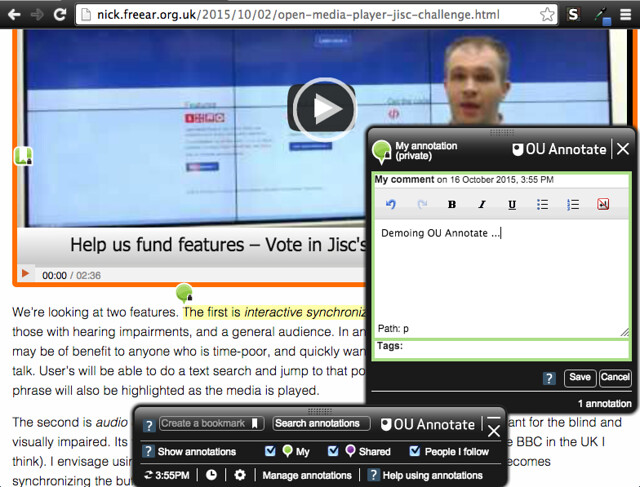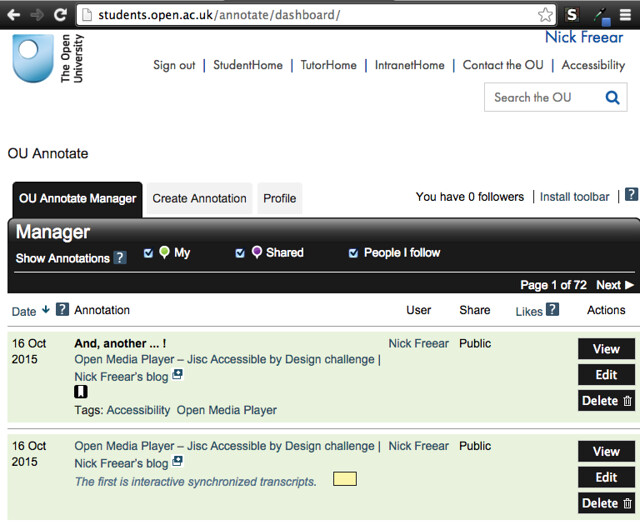OU Annotate
I was in a meeting today of The Open University’s accessibility practitioner’s group. Louise Olney, a project manager in Learning and Teaching Solutions kindly came to talk to us about OU Annotate, and in particular the work that is being done to improve it’s accessibility.
“OU Annotate enables you add your own annotations to web pages. You can create an annotation for an entire web page, like a bookmark, or you can select and highlight specific text. You can add comments and tags to your annotations and, if you wish, share them with others.”
OU Annotate is I think somewhat similar to Snip.ly and Diigo (though as I haven’t used either of these, I could be wrong!)
Open University students and staff can install the OU Annotate bookmarklet and view the manager via StudentHome. And you may also like to view the lead developer, Jenny Gray’s screencast, and Jenny’s blog posts.
I’ve given the OU Annotate bookmarklet a try, and so far it looks impressive. I’m particularly happy to see the functionality to export annotations in various formats, including to Google Docs - intriguing. I would also welcome the option to publish an RSS/Atom feed of my personal annotations. I’m a fairly heavy Delicious user. If it was possible to make annotations world readable (probably a big ask), or if anyone who self-registers for a free Open University account could use OU Annotate I’d consider switching.
Personally, I think that OU Annotate would be a great marketing tool for the OU.
This article was originally posted on Cloudworks.
Updated with screen shots – 16 October 2015.
'SM' comments disabled.
'ID' comments disabled.

